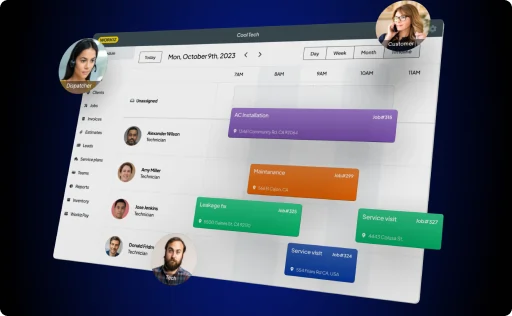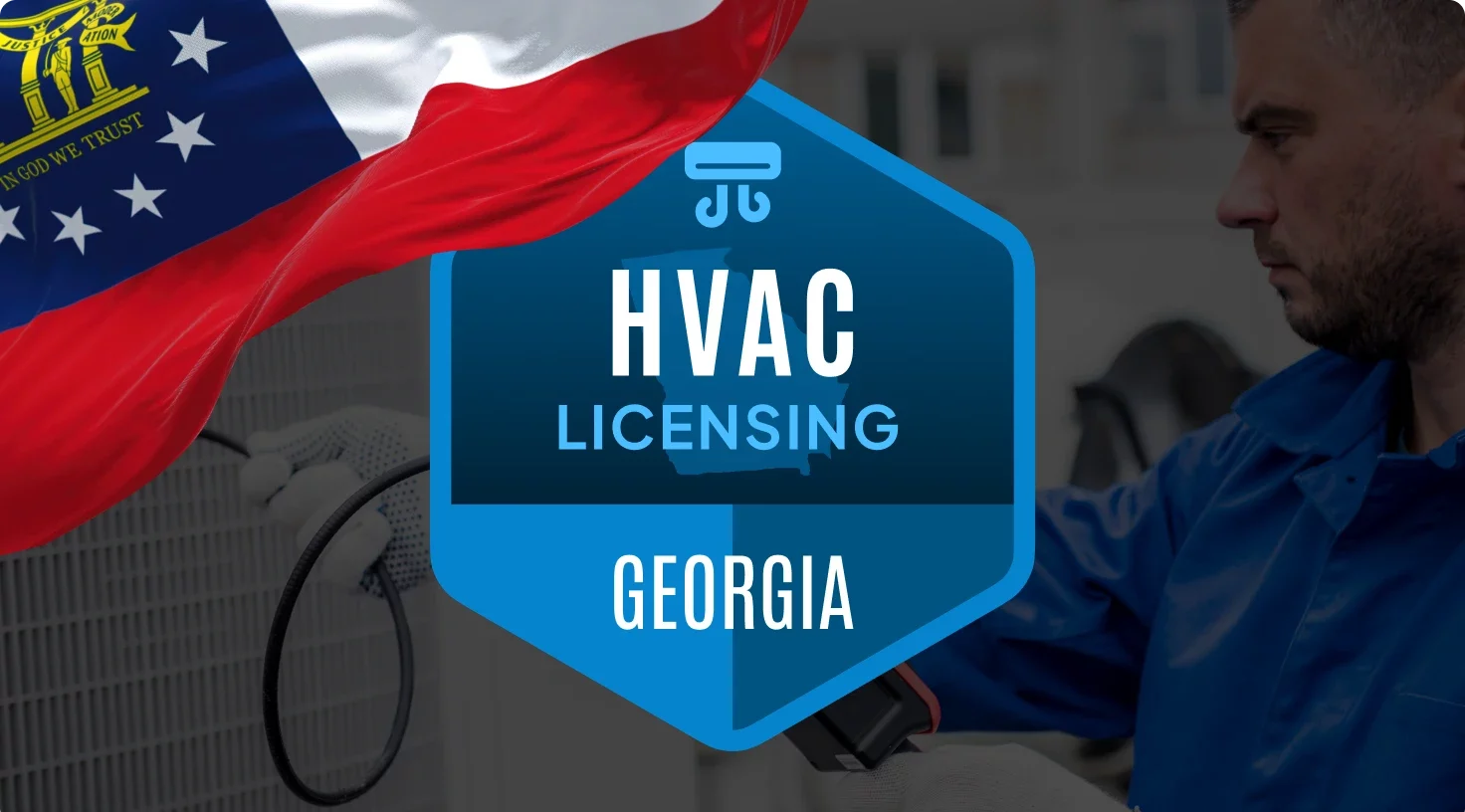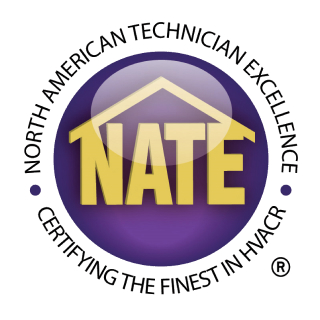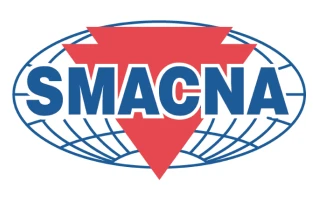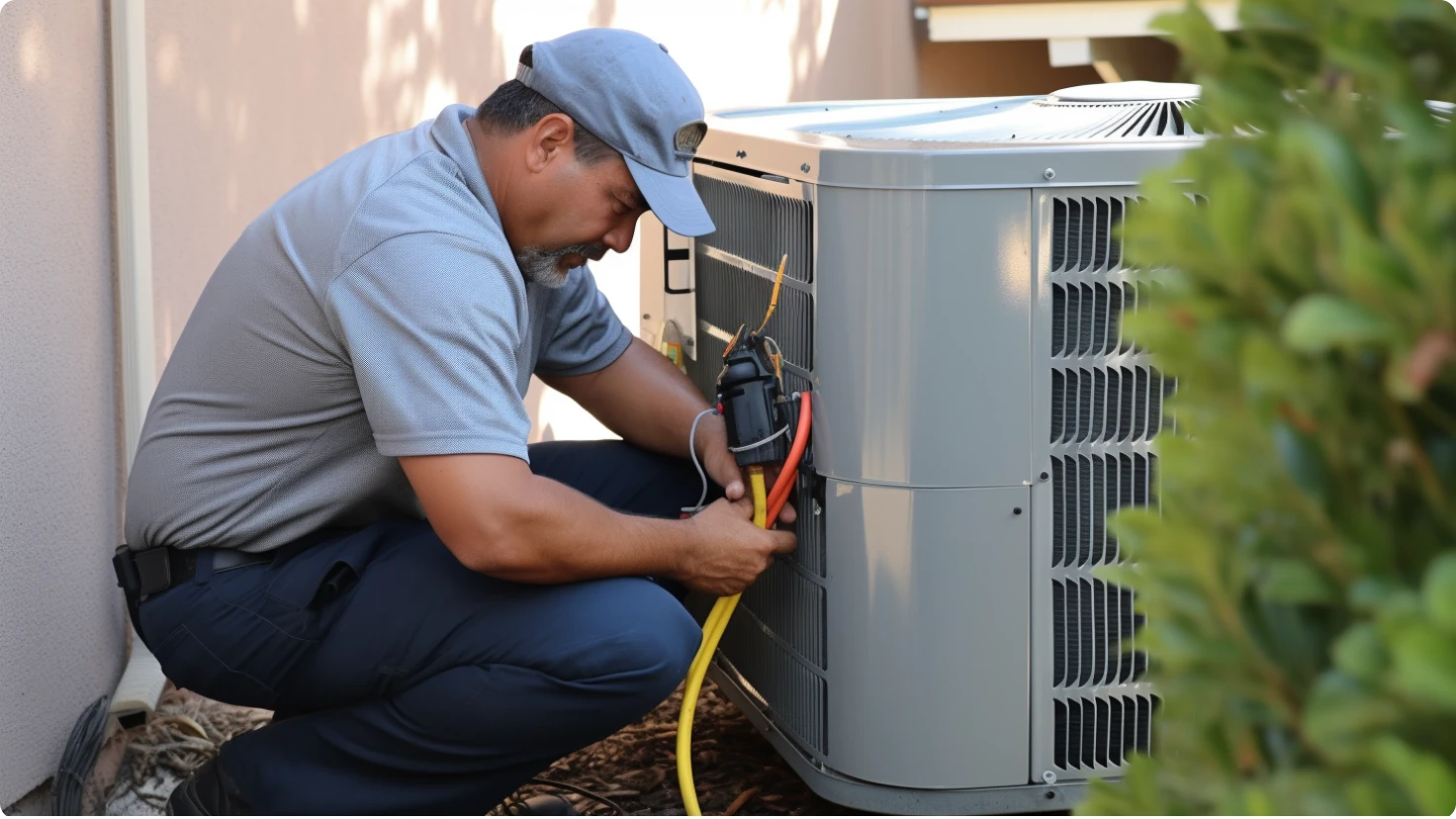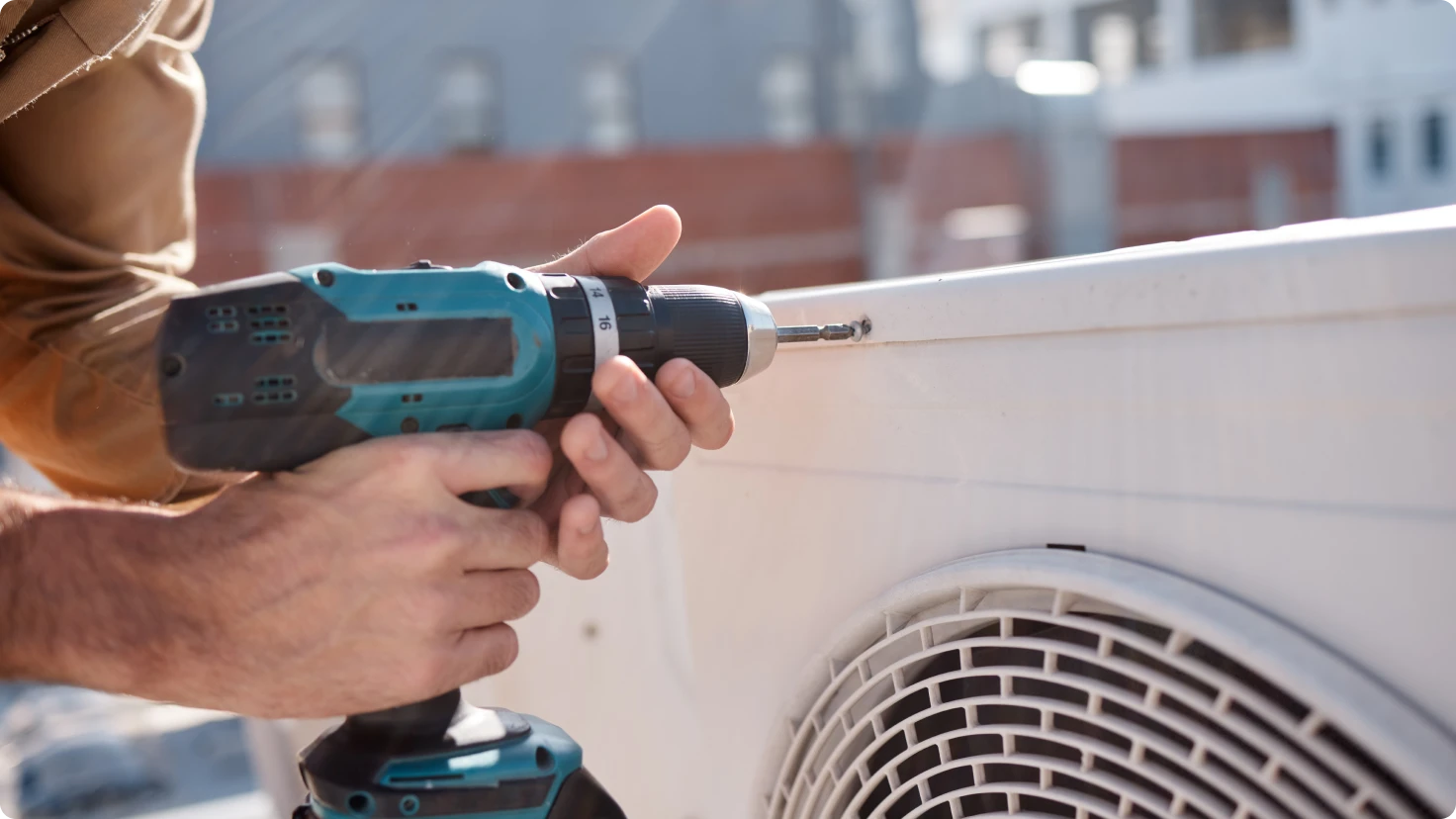In the following sections, we’ll touch on the layers of requirements, certifications, and preparations that pave the way to your success in Georgia’s HVAC industry. Whether you’re a newcomer to the field or an experienced professional seeking to enhance your career prospects, this guide is tailored to provide you with the information you need to embark on your journey toward HVAC contractor licensing in Georgia.
Licensing requirements
In Georgia, you do not need a license to work as an entry-level HVAC worker. However, if you want to work as a licensed HVAC contractor, you must obtain a Conditioned Air Contractor (CAC) license from the Georgia State Board of Conditioned Air Contractors. Engaging in HVAC projects without the appropriate license not only exposes you to potential legal repercussions but also compromises the quality and safety of the work performed.
But before you start the licensing process, it’s important to understand the different types of licenses available in Georgia and the scope of work they cover HVAC certifications.
To become an HVAC contractor in Georgia requires not only obtaining the appropriate license but also acquiring relevant certifications that showcase your expertise and commitment to excellence in the heating, ventilation, and air conditioning (HVAC) field. These certifications not only enhance your skills but also contribute to your credibility as a professional HVAC contractor. Here are some essential HVAC certifications you should consider:
EPA Section 608 Certification
Obtaining the EPA Universal Refrigerant Handling and Recovery Certification is a critical step for HVAC professionals in Georgia who work with refrigerants. This certification, mandated by the Environmental Protection Agency (EPA), is not only a legal requirement but also a testament to your expertise in handling refrigerants safely and responsibly.
The EPA Universal Refrigerant Handling and Recovery Certification, often referred to as EPA 608 certification, is designed to ensure that HVAC technicians have the knowledge and skills necessary to handle refrigerants in compliance with federal regulations. It encompasses different types of certifications based on the types of equipment and systems you work with. This includes:
- Type I Certification: Required for technicians who service small appliances containing five pounds or less of refrigerant. This includes appliances like window air conditioners and refrigerators.
- Type II Certification: Necessary for technicians who work on high-pressure appliances such as residential air conditioning systems and heat pumps.
- Type III Certification: Required for technicians who service low-pressure appliances like chillers.
North American Technician Excellence (NATE) Certification
NATE certifications are widely recognized in the HVAC industry and validate your expertise in various areas, including air conditioning, heat pumps, gas heating, and more. Earning NATE certifications demonstrates your proficiency and knowledge to potential clients and employers.
Administered by a non-profit organization, NATE, this certification is recognized throughout the industry as a benchmark of technical knowledge and practical skills.
Types of NATE Certifications:
NATE offers a wide range of certifications tailored to different HVAC disciplines, including:
- Air Conditioning
- Air Distribution
- Heat Pumps
- Gas Furnaces
- Oil Furnaces
- Hydronics
- Refrigeration
- Commercial Refrigeration
Sheet Metal and Air Conditioning Contractors’ National Association (SMACNA) Certification
The Sheet Metal and Air Conditioning Contractors’ National Association (SMACNA) offers specialized certifications that cater to professionals working in the sheet metal and air conditioning industries. SMACNA is a renowned trade association that represents the interests of the sheet metal, heating, ventilation, and air conditioning (HVAC) industry.
These certifications validate your expertise and proficiency in specific aspects of HVAC systems, ensuring you meet the rigorous standards set by SMACNA.
SMACNA offers a range of certifications that cover various aspects of the HVAC industry, including:
- Architectural Sheet Metal (ASM) Certification: This certification focuses on sheet metal work related to architectural applications. It validates your knowledge and skills in fabricating and installing sheet metal products used in building construction.
- Industrial Sheet Metal (ISM) Certification: ISM certification emphasizes sheet metal work for industrial applications. It covers areas like layout, fabrication, and installation of industrial duct systems.
- HVAC Duct Construction (HVAC Duct) Certification: This certification is dedicated to the fabrication and installation of HVAC duct systems. It ensures professionals can meet the intricate demands of HVAC ductwork.
- Fire, Smoke, and Radiation Damper (FSR) Certification: FSR certification focuses on the installation and maintenance of fire, smoke, and radiation dampers. These components play a crucial role in building safety.
HVAC licenses in Georgia
When pursuing a career as an HVAC professional in Georgia, it’s imperative to understand the intricacies of the two distinct types of HVAC licenses offered by the state. The GBCAC certification is issued by the Georgia State Board of Conditioned Air Contractors, a regulatory body that oversees HVAC contracting services within the state. This certification ensures that HVAC professionals meet specific qualifications and standards set by the board.
GBCAC offers two main types of HVAC licenses and these licenses determine the scope of work you’re authorized to undertake and play a significant role in shaping your HVAC career. Let’s explore each type of license in detail.
Class I HVAC License
Scope and Limitations: The Class I HVAC license is a restricted license that is tailored for professionals working on HVAC systems with specific heating and cooling capacities. This license comes with certain limitations and is generally intended for smaller-scale HVAC systems.
Authorized Tasks:
- With a Class I license, you are permitted to work on HVAC systems with a net heating capacity of up to 175,000 BTU (British Thermal Units).
- You can also work on HVAC systems with a net cooling capacity of up to 60,000 BTU.
- This license is suited for projects involving smaller HVAC systems, which fall within these specified capacity limits.
Considerations: HVAC professionals who choose the Class I license should be mindful of the capacity limitations. While it may restrict you from working on larger systems, it is well-suited for residential and smaller commercial projects that fall within the specified capacity thresholds.
Class II HVAC License
Scope and Flexibility: The Class II HVAC license offers unrestricted privileges and provides HVAC professionals with the flexibility to work on systems of any size. This license is designed for individuals who want to engage in HVAC projects without being limited by capacity constraints.
Authorized Tasks:
- With a Class II license, you have the freedom to work on HVAC systems of any heating or cooling capacity.
- This license is not bound by the capacity limitations that apply to the Class I license.
Considerations: HVAC professionals who opt for the Class II license enjoy a broader range of opportunities. This license is well-suited for those who intend to work on a diverse array of projects, from smaller residential systems to larger commercial and industrial installations.
How to get an HVAC license in Georgia
Becoming a licensed HVAC professional in Georgia involves a series of steps that demonstrate your expertise and commitment to maintaining industry standards. Whether you’re an aspiring technician or aiming to establish your own HVAC contracting business, here is a step-by-step process to acquire the necessary license in Georgia.
Step 1: Understand the types of HVAC licenses
As earlier stated, Georgia offers two primary types of HVAC licenses and the area of specialization you choose will determine the one you should apply for.
Remember that the Class I HVAC License is restricted and allows you to work on HVAC systems with a net heating capacity of up to 175,000 BTU and a net cooling capacity of up to 60,000 BTU. On the other hand, if you prefer to work on HVAC systems of any size, without capacity limitations, then you should consider the Class II HVAC License.
Step 2: Fulfill eligibility requirements
Ensure you meet the eligibility criteria set by the Georgia Board of Conditioned Air Contractors. These standards are very important and determine whether or not you will be able to proceed with the rest of the process.
Some of the basic requirements you must fulfill include:
- Be at least 18 years old.
- Possess a high school diploma or equivalent.
- Have relevant work experience (varies by license type).
- Pass the Georgia Business and Law exam.
- Obtain liability insurance and a surety bond.
In addition to these general requirements, some municipalities and counties in Georgia may have additional requirements. You should check with the Georgia State Board of Conditioned Air Contractors to find out the specific requirements.
Step 3: Gain required work experience
Depending on the license type you’re pursuing, accumulate the necessary work experience:
- For a Class I license: Gain experience working on systems with capacities within the prescribed limits.
- For a Class II license: Acquire a broader range of HVAC experience, as this license allows work on systems of any size.
Step 4: Prepare for and pass the georgia Business and Law exam
Passing the Georgia Business and Law exam is essential. It tests your understanding of business practices and state regulations relevant to HVAC contractors. Study diligently to achieve a passing score.
Step 5: Obtain liability insurance and surety bond
Before applying for your license, secure liability insurance and a surety bond as required by Georgia regulations. These provide financial protection for your clients and your business.
Step 6: Submit your application
Compile your application materials and submit them to the Georgia Board of Conditioned Air Contractors. Include documentation of your work experience, proof of passing the Georgia Business and Law exam, and evidence of insurance and bond.
Step 7: Undergo background check and fingerprinting
Expect to undergo a background check and fingerprinting as part of the application process. This ensures your suitability for an HVAC contractor license.
Step 8: Receive your HVAC license
Upon approval of your application and successful completion of all requirements, you’ll receive your HVAC license from the Georgia Board of Conditioned Air Contractors.
Becoming a licensed HVAC professional in Georgia
Here is a proper breakdown of the requirements you need to fulfill to become a licensed and certified HVAC technician in Georgia.
- You need to be at least 18 years old.
- A high school diploma or GED is required as a foundational qualification.
- For a Class I license application, a total of four years of professional experience in the HVAC field is necessary. Alternatively, to apply for a Class II license, you should have a minimum of five years of experience in HVAC work.
Here is a table summarizing the requirements for the two types of HVAC licenses in Georgia:
| License Type | Experience | Exam | Liability Insurance |
| Class I | 4 years | Yes | Yes |
| Class II | 5 years | Yes | Yes |
- It’s important to note that your educational background can contribute towards meeting the experience requirement. Successful completion of a technical school’s engineering or engineering technology diploma program can be recognized for up to two years of experience.
- Complete the application form and ensure all sections are filled accurately.
- Next, you have to take and pass the CAC licensing examination. To get a PASS grade, you must attain a minimum score of 70%.
- Fulfill all necessary fee payments as required.
- Be sure to attach various references from professionals such as Architects, Professional Engineers, Inspectors, or licensed conditioned air contractors. These references should affirm your character and experience in the conditioned air field. It’s essential that each reference includes their respective registration or license number.
- Finally, you need to get a surety bond which is usually valued at $10,000. This bond should be arranged to be deposited with a probate court judge in the county where your primary work location is situated.
Conditioned Air Contractor (CAC) exam
The CAC exam is a 100-question multiple-choice exam that covers the principles of heating, ventilation, and air conditioning, the installation, maintenance, and repair of HVAC systems, and the safety regulations for HVAC work. You must score at least 70% on the exam to pass.
The exam is administered by PSI (Proctored Services Inc.). You can find more information about the exam and how to register to take it on the PSI website.
Liability insurance
You must have liability insurance in the amount of $10,000 for a Class I license and $15,000 for a Class II license. The insurance must cover bodily injury and property damage caused by your work as an HVAC contractor.
Payment Fees
- Application fee: $30
- Exam fee: $267
- Renewal fee every two years: $75
- EPA Section 608 Certification Type I Examination: Usually between $20 or upwards of $150 for the Universal Exam
Application process
To apply for an HVAC license in Georgia, you must complete an application form and submit the following documents:
- Proof of education and training
- Proof of passing the CAC exam
- Proof of liability insurance
- A criminal background Check
- You can apply for an HVAC license online or by mail.
Renewal process
HVAC licenses in Georgia expire every two years. To renew your license, you must complete a renewal application and pay a renewal fee.
Benefits of getting an HVAC license
Obtaining a license brings numerous benefits that can elevate your expertise and advance your professional journey. Here are some key advantages of getting an HVAC license in Georgia:
Professional recognition
An HVAC license is a badge of professionalism. It signifies your dedication to the HVAC field and your commitment to maintaining high standards. Being recognized as a licensed HVAC professional not only enhances your reputation but also garners respect from peers, clients, and employers.
Expanded career opportunities
An HVAC license expands your horizons in the industry. Licensed professionals have access to a wider array of job opportunities and are often considered more favorably for positions such as lead technicians, supervisors, or contractors. The license acts as evidence of your commitment to professionalism and expertise. One of the best opportunities is starting your own HVAC business and the best way to streamline and manage your business efficiently is with a field management software.
Increased earning potential
Licensed HVAC professionals generally command higher salaries than their unlicensed counterparts. Clients are willing to pay more for services provided by licensed individuals due to the assurance of quality work and adherence to industry standards. This translates to better earning potential for licensed technicians and contractors.
Trust and customer confidence
Clients are more likely to trust licensed HVAC professionals because licensure indicates a commitment to maintaining industry standards. Your license demonstrates that you’ve met stringent requirements and are dedicated to ensuring quality workmanship, ultimately fostering customer confidence and loyalty.
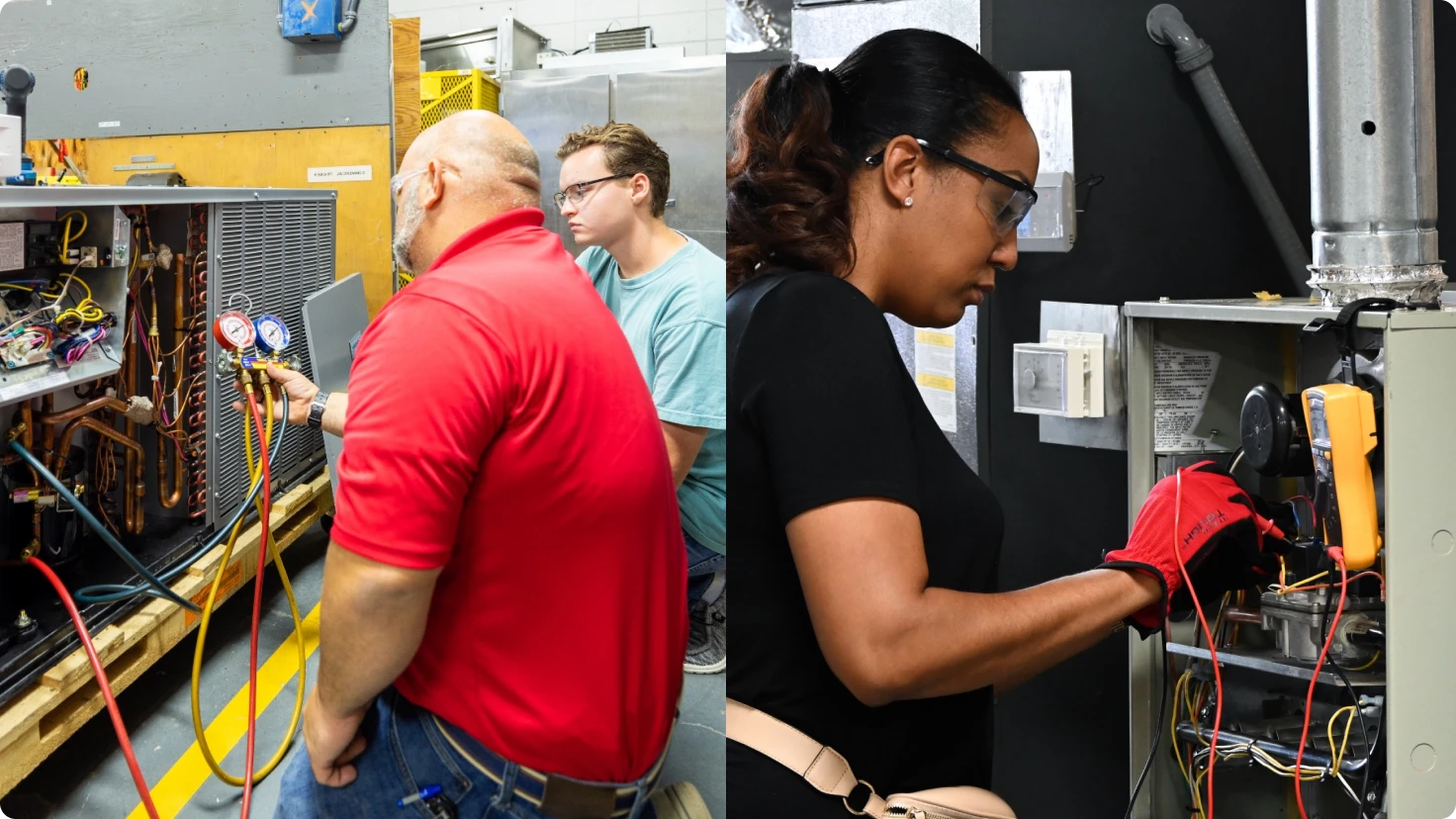
HVAC Students at Coastal Pines Technical College
HVAC schools and training programs in Georgia
You can undergo the following HVAC programs at Georgia:
Training Programs:
- HVAC Technician Diploma program.
- HVAC Technician Associate Degree
- HVAC Troubleshooting Certificate
HVAC Schools:
- Coastal Pines Technical College, Jessup in Jessup, GA
- Georgia Piedmont Technical College, GA.
- North Georgia Technical College, GA
- Chattahoochee Technical College, GA
- Lanier Technical College in Gainesville, GA
- North Georgia Technical College in Clarksville, GA
- Atlanta Technical College, GA
- South Georgia Technical College, GA
- Coastal Pines Technical College, GA
- Metropolitan College of Technology, Atlanta in Georgia
- Southern Regional Technical College, Thomasville, GA
- Southern Regional Technical College, Moultrie Campus in Moultrie, GA
What you need to know as an HVAC contractor
For HVAC contractors, staying competitive and efficient in a rapidly evolving industry requires embracing modern technologies. HVAC software tools such as Workiz have emerged as indispensable assets, offering a wide range of benefits that can transform your contracting business. Here’s what HVAC contractors need to know about the significance of integrating HVAC software tools into their operations:
- Streamlined Job Management: HVAC software tools provide a centralized platform for managing all aspects of your projects, from scheduling and dispatching to tracking and invoicing. This streamlines your job management process, minimizing errors and ensuring every task is executed smoothly.
- Enhanced Communication: Effective communication is pivotal in the HVAC contracting business. Top HVAC software tools facilitate real-time communication between office staff and field technicians. Instant messaging, work order updates, and technician tracking ensure that everyone is on the same page, fostering better coordination.
- Efficient Resource Allocation: Optimizing resources, including technicians, equipment, and materials, is essential for profitability. HVAC software tools offer insights into resource availability, enabling you to make informed decisions regarding job assignments and material procurement. This leads to reduced waste and heightened efficiency.
- Customer Relationship Management: HVAC software tools allow you to maintain detailed customer profiles, service histories, and preferences. This enables personalized service and tailored recommendations, fostering stronger customer relationships and enhancing client satisfaction.
- Accurate Documentation and Compliance: Maintaining accurate records and documentation is critical for regulatory compliance. Workiz software tools automate record-keeping, ensuring you have a comprehensive database of service history, maintenance schedules, and equipment details. This simplifies audits and enhances accountability.
- Data-Driven Insights: The best software tools provide insights with a clear view of key performance metrics, allowing you to identify trends, areas for improvement, and opportunities for growth. Informed decision-making becomes a reality with data-driven insights.
FAQs about HVAC licensing in Georgia
Here are some commonly asked questions about HVAC licensing in the city of Georgia
Is it illegal to work as an HVAC contractor without a license in Georgia?
Yes, it is illegal to work as an HVAC contractor without a license in Georgia. If you are caught working without a license, you could be fined up to $1,000 per day. You could also be ordered to stop working and could be required to pay restitution to your customers.
Can education be substituted for work experience when applying for an HVAC license?
Yes, certain educational programs, such as completion of a technical school’s engineering program, can be credited toward the required work experience. The extent of substitution varies based on the program complete
